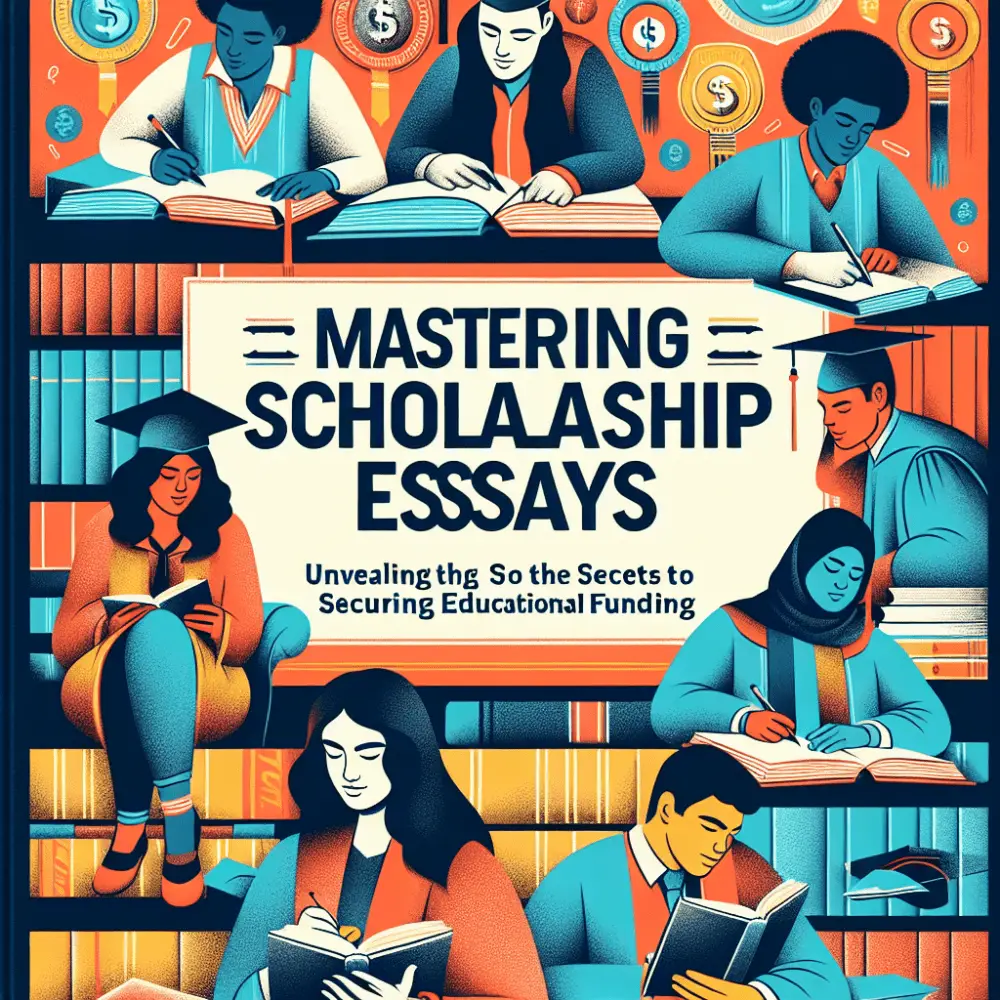
Mastering the Art of Scholarship Essays: Unveiling the Secrets to Securing Educational Funding
Introduction:
In today’s world, education has become increasingly important for personal and professional growth. However, the rising costs of tuition and other expenses often pose a significant challenge for many students. Scholarship programs are an invaluable resource that can help alleviate the financial burden and make education more accessible to deserving individuals. The key to unlocking these opportunities lies in crafting a compelling scholarship essay that showcases your unique qualities, achievements, and aspirations. In this article, we will take a closer look at the art of scholarship essays and unravel the secrets to securing educational funding.
Section 1: Understanding the Purpose and Importance of Scholarship Essays
Scholarship essays serve as a pivotal tool for selection committees in determining the most deserving candidates for scholarships. These essays provide an insight into the applicant’s background, motivations, goals, and personal attributes. By carefully crafting an impactful essay, you have the opportunity to stand out from other applicants and increase your chances of securing educational funding.
Section 2: Preparing for Writing a Stellar Scholarship Essay
Before diving into writing your scholarship essay, it is crucial to conduct thorough research about the organization or committee offering the scholarship. Familiarize yourself with their mission statement, values, and any specific requirements they may have outlined. This knowledge will enable you to align your essay with their goals effectively.
Start by brainstorming ideas and outlining key points you would like to highlight in your essay. Reflect on your personal experiences, academic achievements, extracurricular activities, community involvement, and long-term goals that demonstrate your potential as a successful student or professional.
Section 3: Crafting an Attention-Grabbing Introduction
The introduction is your chance to captivate readers right from the start. Begin with a compelling hook or anecdote that grabs their attention and makes them curious to learn more about your journey. Incorporate relevant statistics or facts related to the field of study or industry you wish to pursue.
Section 4: Telling Your Unique Story
The body of your scholarship essay should revolve around crafting a compelling narrative. Share personal experiences, challenges you have overcome, and lessons you have learned along the way. Be authentic and sincere in your writing, allowing the readers to connect with your story on an emotional level.
Highlight your accomplishments, both inside and outside the classroom. Discuss any leadership roles you have undertaken or initiatives you have spearheaded that demonstrate your commitment to making a positive impact in your community.
Section 5: Aligning Your Goals with the Scholarship
Scholarship committees are interested in investing in individuals who will utilize their education to create a meaningful impact in their chosen fields. It is essential to articulate clear and realistic goals that showcase how pursuing further education will contribute to your personal growth and society at large.
Acquaint yourself with the specific goals and values of the scholarship program and emphasize how obtaining the scholarship aligns with your aspirations. Demonstrate a strong sense of purpose, explaining how the funding will enable you to reach your full potential as an aspiring student or professional.
Section 6: Maintaining Clarity and Conciseness
An effective scholarship essay should be concise, clear, and well-structured. Avoid using excessive jargon or technical language that may confuse readers. Instead, use simple language that can be easily understood by individuals of all backgrounds – even kids!
Organize your essay into paragraphs that flow seamlessly from one idea to another. Each paragraph should focus on a specific point or accomplishment, providing relevant details without overwhelming the reader.
Conclusion:
Crafting an exceptional scholarship essay is no easy task, but with careful preparation, research, and thoughtful writing it can be achieved. By understanding the purpose of scholarship essays and aligning your aspirations with the values of the scholarship program, you increase your chances of securing educational funding. So seize this opportunity, tell your unique story, and let your words paint a vivid picture of the remarkable individual you are.
FAQs:
Q1: How long should a scholarship essay be?
A1: The length of scholarship essays varies depending on the specific requirements outlined by the scholarship program. However, most essays range from 500 to 1,000 words. It is essential to read and follow the instructions provided by the scholarship committee.
Q2: Can I reuse my scholarship essay for multiple applications?
A2: While it may be tempting to reuse a scholarship essay for multiple applications, it is recommended to tailor your essay to each specific scholarship program. This allows you to address the unique goals and values of each program and increases your chances of success.
Q3: Should I include personal experiences in my scholarship essay?
A3: Yes! Personal experiences are an integral part of crafting a compelling scholarship essay. They provide insight into your character, resilience, and ability to overcome challenges. Be sure to highlight experiences that are relevant to your academic or career goals.
Q4: Is it necessary to have someone proofread my scholarship essay?
A4: Having someone proofread your scholarship essay is highly recommended. A fresh pair of eyes can catch any grammatical or structural errors that may have been overlooked. Additionally, they can provide valuable feedback on the clarity and impact of your writing.
Q5: How do I make my scholarship essay stand out from others?
A5: To make your scholarship essay stand out, focus on telling a unique and genuine story about yourself. Highlight accomplishments that demonstrate leadership skills, community involvement, or exceptional academic achievements. Use vivid language, strong examples, and be sure to convey your passion and commitment towards making a difference in your chosen field.
















